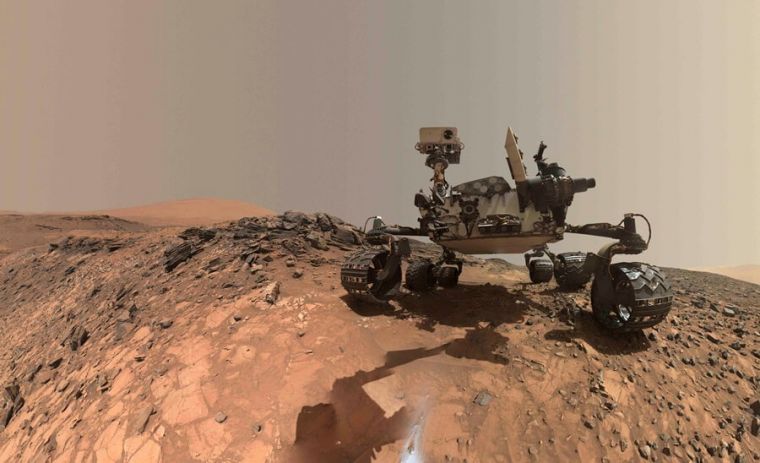Mars was 'wetter' before: NASA rover finds ancient lake on Red Planet's surface

After recently discovering signs of liquid and frozen water on the surface of Mars, the National Aeronautics and Space Administration (NASA) made another startling discovery on the Red Planet: a great lake which existed billions of years ago capable of storing tons and tons of water over an extended period of time.
The ancient lake was discovered by NASA through data from its Curiosity Rover, particularly sediment deposits found on the planet's Gale Crater.
Ashwin Vasavada, Mars Science Laboratory project scientist at NASA's Jet Propulsion Laboratory in Pasadena, California, explained that the layers of sediment deposits were found on the base of Mount Sharp, located in the middle of Mars' Gale Crater.
Space scientists previously thought that these sediments were just dust and sand blown by the wind.
"Observations from the rover suggest that a series of long-lived streams and lakes existed at some point between about 3.8 to 3.3 billion years ago, delivering sediments that slowly built up the lower layers of Mount Sharp," Vasavada explained.
The space scientist particularly described the new discoveries as "finely laminated mudstones in abundance that look like lake deposits."
Michael Meyer, lead scientist for NASA's Mars Exploration Program at NASA headquarters in Washington, meanwhile said that these new findings, published on the journal Science, indicate that just like the Earth now, Mars had great bodies of water billions of years ago.
"What we thought we knew about water on Mars is constantly being put to the test. It's clear that the Mars of billions of years ago more closely resembled Earth than it does today. Our challenge is to figure out how this more clement Mars was even possible, and what happened to that wetter Mars," Meyer said.
John Grotzinger, the former project scientist for Mars Science Laboratory at the California Institute of Technology in Pasadena and lead author of the report on the great lake on Mars, for his part said it is really high time to re-evaluate "all our assumptions" about Mars.
"We have tended to think of Mars as being simple. We once thought of the Earth as being simple, too. But the more you look into it, questions come up because you're beginning to fathom the real complexity of what we see on Mars," he said.











